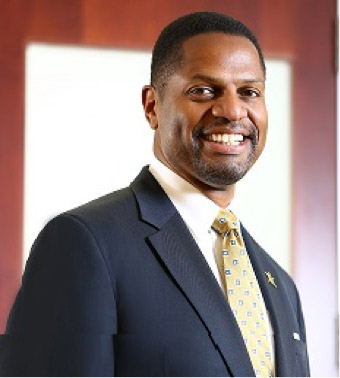
Karl Reid, executive director of the National Society of Black Engineers will address the class of 2017.
Karl Reid, EdD, will speak at the 2017 Volgenau School of Engineering degree celebration. The ceremony is 2:00 p.m. May 18 at the EagleBank Arena on the Fairfax Campus.
Reid was named executive director of the National Society of Black Engineers (NSBE) in 2014, marking his return to the organization that gave him his first major leadership experience, 34 years earlier. For the past 19 years, he has been a leading advocate for increasing college access and opportunity for low-income and minority youth.
Reid came to NSBE from the United Negro College Fund (UNCF), where he held the title of senior vice president for research, innovation, and member college engagement. Before his service at UNCF, he worked in positions of increasing responsibility to increase diversity at his alma mater, the Massachusetts Institute of Technology (MIT). While working at MIT, Reid earned his doctorate in education at Harvard University.
Reid earned his undergraduate and master’s degrees in materials science and engineering from MIT. He credits his membership and leadership in the NSBE chapter at MIT with giving a vital boost to his self-confidence.
After graduating from MIT, Reid worked in the computer industry as a manager, marketer, and consultant. In 1991, Reid read Jonathan Kozol’s Savage Inequalities, a seminal book about educational disparities in the U.S., which sparked his passion for bringing about positive change through education of African Americans.
His research interests focus on the factors that contribute to the success of underrepresented students in college. He is the author of the recently released book “Working Smarter, Not Just Harder: Three Sensible Strategies for Succeeding in College…and Life.”
Reid now supports NSBE’s National Executive Board and the Society’s 16,000 members in reaching the main goal of NSBE’s 10-year Strategic Plan: to move black students and professionals from underrepresentation to overrepresentation in engineering in the U.S., by producing 10,000 Black Engineers annually in the country, by 2025.

